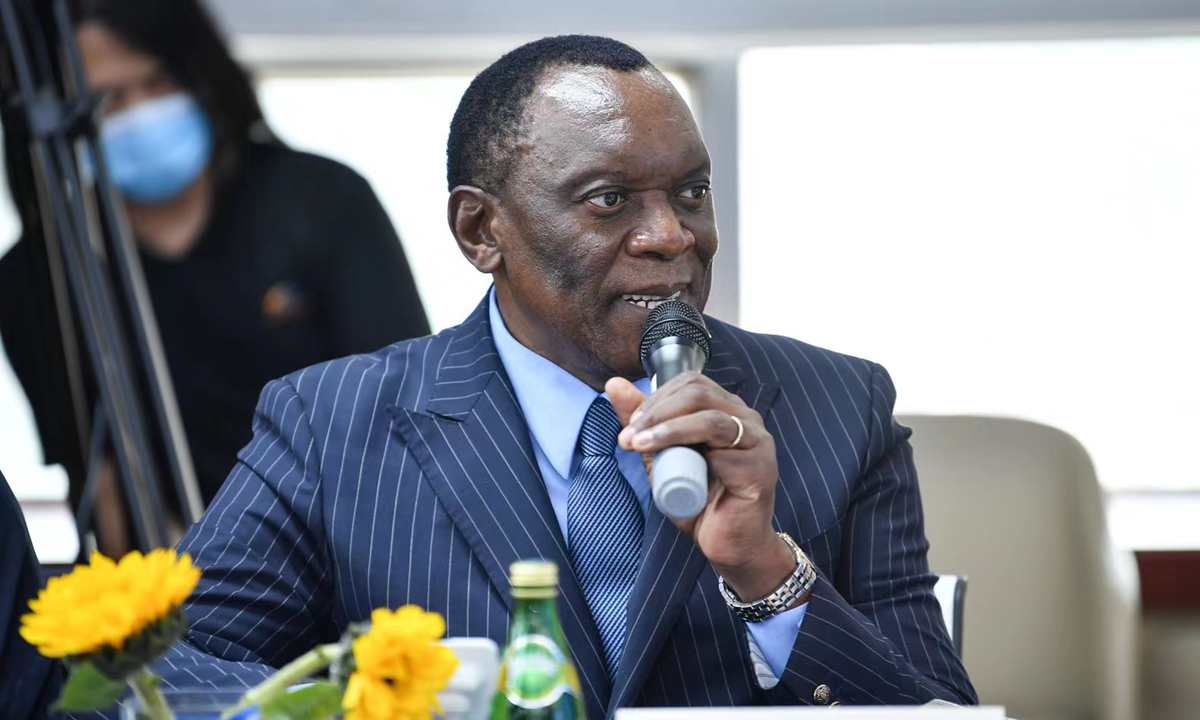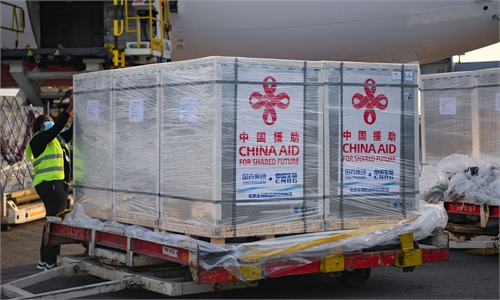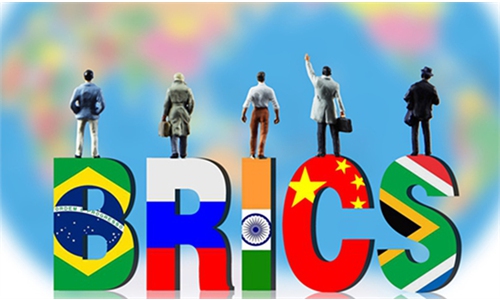Exclusive: BRICS cooperation ‘not an exclusive club’ but with practical measures in addressing challenges: South African ambassador to China

Siyabonga Cwele, Ambassador of South Africa to China.Photo: Courtesy of South African Embassy in China
Siyabonga Cwele, Ambassador of South Africa to China, told the Global Times in an exclusive interview ahead of the 14th BRICS Summit, which is held virtually this week, that BRICS is a significant force in terms of helping the global community deal with the current challenges.
It is very important, particularly for developing countries, to have an alternative voice in global governance, Cwele said, adding that BRICS is not an exclusive club and aims to tackle challenges such as climate change, supply chain disruptions and trade and economic recovery.
Accounting for more than 40 percent of the world's population, BRICS countries - Brazil, Russia, India, China, and South Africa - account for 24 percent of global GDP and 16 percent of world trade.
BRICS plays a crucial role in maintaining a stable global supply chain, as disruptions to the supply chain threaten to drag down the global economy, the ambassador told the Global Times during the recent 8th Annual China and Globalization Forum held by the Center for China and Globalization in Beijing.
BRICS countries share common aspirations for development, which is also a driving force, Cwele noted, adding that the countries tend to have mutual respect, which also explains why the bloc has been growing in strength.
The BRICS group of leading emerging economies initially started in 2006 with four members: Brazil, Russia, India and China. South Africa was officially invited to join on December 23, 2010.
"You don't want this to be an exclusive club. South Africa was not originally part of this. We joined BRICS later as the first beneficiary of the expansion," Cwele said.
Still, it's crucial to have clear criteria for membership, and the ambassador said he is sure that there are other issues being considered that will be finalized by the countries' leaders. "I hope it won't be long before we finalize those things," he said, noting that the discussion for the grouping's expansion should work as a uniting force rather than causing divisions.
The South African ambassador to China said that the cooperation includes the economy, politics and people-to-people communication. Such high-level communication between leaders will also help lower levels to "get in tune" to work faster and make sure that things move smoothly.
The practical implementation of economic and trade decisions will contribute to the high-quality BRICS partnership, the South African diplomat said.
During the COVID-19 pandemic, South Africa, like other developing countries in Africa, faced huge challenges in terms of marshalling medical resources and live-saving measures. "But because of our BRICS partners, they were communicating… [China] started sending some of those [medical supplies], their vaccines," he said, noting that this assistance was significant. There has also been other cooperation in agriculture and scientific research, which are all critical to people's development.
As to whether South Africa will face any political pressure over its close partnership with China and Russia, Cwele said that South Africa pursues an independent foreign policy.
"Our approach is that we believe in peace, we believe in resolving any conflict through peaceful means, and we believe in the supremacy of the UN system, which is governing all of us through agreed rules that we should all respect," he said, adding that BRICS countries have common ideas about focusing on peace and growth.
"We chose the strongest cohesion in terms of how to solve conflicts and global challenges among our leaders," Cwele said, extending the hope that diplomacy can create a lasting solution given that the current conflict is weighing heavily on the global economy.



